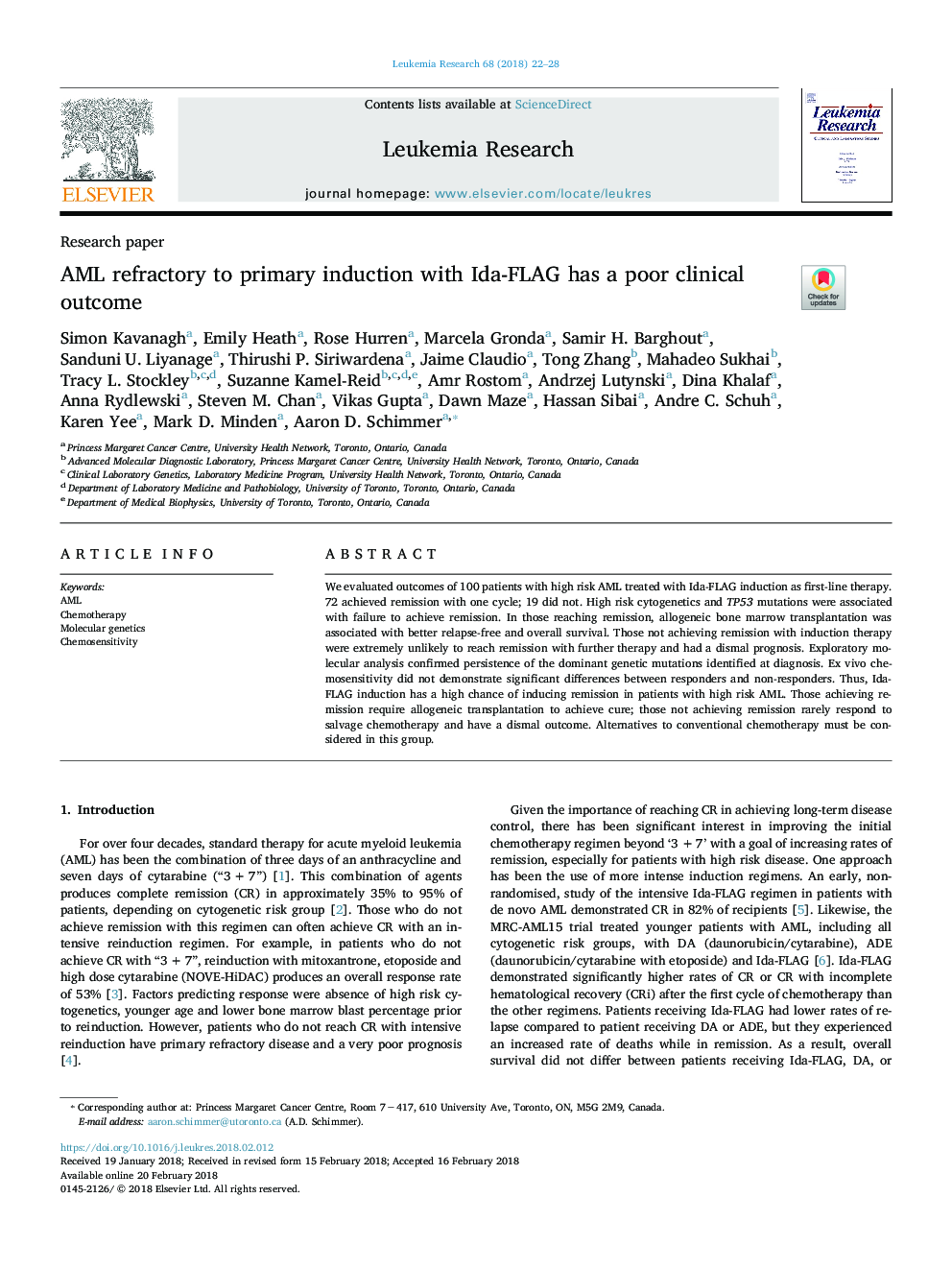| Article ID | Journal | Published Year | Pages | File Type |
|---|---|---|---|---|
| 8453331 | Leukemia Research | 2018 | 7 Pages |
Abstract
We evaluated outcomes of 100 patients with high risk AML treated with Ida-FLAG induction as first-line therapy. 72 achieved remission with one cycle; 19 did not. High risk cytogenetics and TP53 mutations were associated with failure to achieve remission. In those reaching remission, allogeneic bone marrow transplantation was associated with better relapse-free and overall survival. Those not achieving remission with induction therapy were extremely unlikely to reach remission with further therapy and had a dismal prognosis. Exploratory molecular analysis confirmed persistence of the dominant genetic mutations identified at diagnosis. Ex vivo chemosensitivity did not demonstrate significant differences between responders and non-responders. Thus, Ida-FLAG induction has a high chance of inducing remission in patients with high risk AML. Those achieving remission require allogeneic transplantation to achieve cure; those not achieving remission rarely respond to salvage chemotherapy and have a dismal outcome. Alternatives to conventional chemotherapy must be considered in this group.
Related Topics
Life Sciences
Biochemistry, Genetics and Molecular Biology
Cancer Research
Authors
Simon Kavanagh, Emily Heath, Rose Hurren, Marcela Gronda, Samir H. Barghout, Sanduni U. Liyanage, Thirushi P. Siriwardena, Jaime Claudio, Tong Zhang, Mahadeo Sukhai, Tracy L. Stockley, Suzanne Kamel-Reid, Amr Rostom, Andrzej Lutynski, Dina Khalaf,
